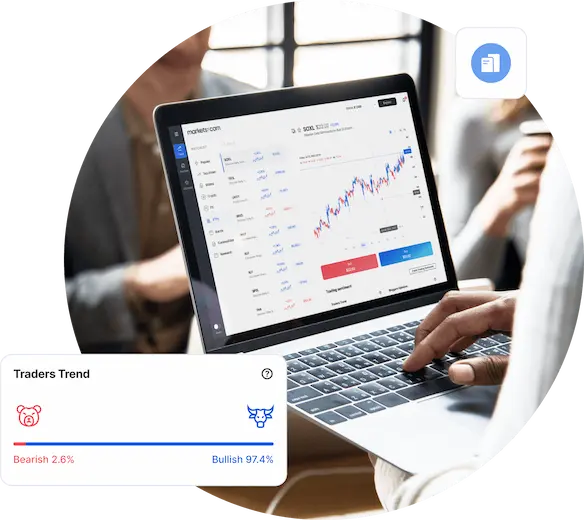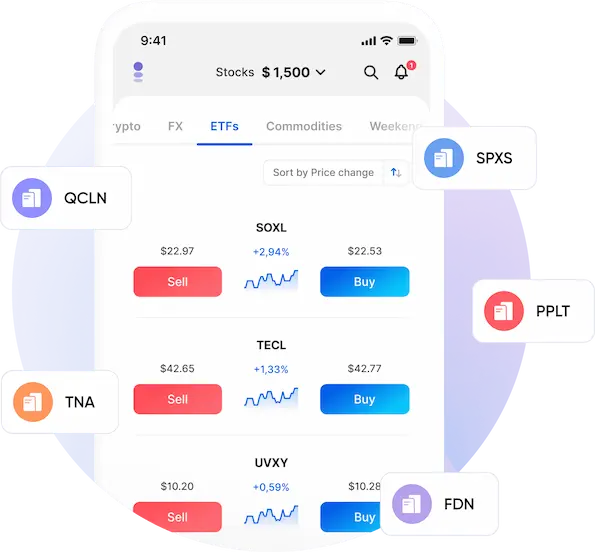
CFDs are complex instruments and come with a high risk of losing money rapidly due to leverage. 74% of retail investor accounts lose money when trading CFDs with this provider. You should consider whether you understand how CFDs work and whether you can afford to take the high risk of losing your money.
You are attempting to access a website operated by an entity not regulated in the EU. Products and services on this website do not comply with EU laws or ESMA investor-protection standards.
As an EU resident, you cannot proceed to the offshore website.
Please continue on the EU-regulated website to ensure full regulatory protection.
Trade CFD ETFs - Exchange Traded Funds – to gain exposure to a wide range of stock markets, sectors, commodities, bonds and currencies. Buy the ones you like, short the ones you don’t.
Trade ETFsETF is short for: Exchange Traded Fund.
ETFs combine the features of funds and equities into one instrument. Like other investment funds, they group together various assets, such as stocks or commodities. This helps the ETF track the value of its underlying market as closely as possible.
For instance
There are ETFs that track the FTSE 100, containing constituents of that index proportional to the FTSE’s price. Other exchange traded funds may group together companies working in certain sectors, like Lithium producers, or follow an asset like Gold.


Here are some of the most commonly occurring Exchange Traded Funds available for investors.

These include government bonds, corporate bonds, and US municipal bonds, covering state and local bonds

Used by forex investors to invest in a variety of currencies such as USD, EUR, or GBP

These group together different commodities, with popular funds including oil ETFs, gold, and other metals

Group together stocks in a specific industry, they may take a wider view of their industry, representing companies working across all sectors, like tech manufacturers, component suppliers, technology retailers etc

An inverse Exchange Traded Fund attempts to earn gains from stock declines by shorting stocks, commodities, bonds or other financial assets
A CFD account will allow you to trade online while accessing a variety of ETFs. Go long or short depending on your view of the market.

Сalculate your hypothetical P/L (aggregated cost and charges) if you had opened a trade today.
Market

Instrument


Account Type
Direction
Quantity
Amount must be equal or higher than
Amount should be less than
Amount should be a multiple of the minimum lots increment
USD
EUR
GBP
CAD
AUD
CHF
ZAR
MXN
JPY
Value
Commission
Spread
Leverage
Conversion Fee
Required Margin
Overnight Swaps
Past performance is not a reliable indicator of future results.
All positions on instruments denominated in a currency that is different from your account currency, will be subject to a conversion fee at the position exit as well.
An ETF, or exchange-traded fund, is a type of investment fund that is traded on a stock exchange. ETFs are designed to track the performance of a specific index, commodity, or basket of assets, and they provide investors with exposure to a diversified portfolio of assets. ETFs are similar to indices but offer more flexibility as they can be traded throughout the day.
markets.com provides traders with easy-to-use trading applications and functionalities to assist them in their trading and strategies. When trading ETFs with CFDs, you do not own the underlying asset itself. As such, you only speculate on the rise or fall of its price. Common trading strategies apply. A CFD investor can go short or long, set stop and limit orders, and apply trading scenarios that align with his or her objectives.